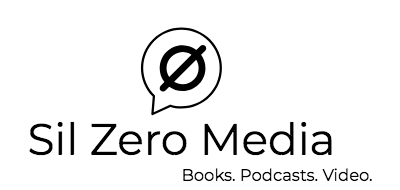Update time! I still plan on going through the essays from NOVELIST AS A VOCATION. I'm still going through the the book, actually! But I figure it was time to check in again.
One of the things about blogging, and recording your process in general, is that when you have a lot of things going on that it can turn into just another thing that takes away from the time you could be using to create. So lately, I've been prioritizing actually creating stuff in the time I have available, which has resulted in some pretty great results.
First, my current novel project is at 36,395 words and moving steadily along. I'll go more into detail about this when I get to the relevant essay from NOVELIST AS A VOCATION, but treating my writing time as a more physical act that has to be accomplished every day has been very effective in keeping my numbers flowing.
One takeaway I'll share now, though, is something I'm tentatively naming "READER/WRITER TIME DILATION."
One of the things I struggle with in the writing process is chugging along and wondering if something is dragging on too long or is taking too much time. I don't want to bore the reader, and pacing is very important to me.
In the past, I've often struggled in continuing on in a project when I feel like I hit a lull in the story and what I'm writing is super boring. So then I pause and think about it, and hope that I can figure out why it's so boring and what I can do to change it. If I'm unable to do this within a certain amount of time, though, I end up dropping the project or letting it sit around until I can figure out the problem with it again.
With my new method, though, which helps me push the words out even though I may not be feeling it at a particular moment, I started to realize that there's a dilation of time in how I'm experiencing the events and vs how the reader will.
My current write speed is about 1,600 words per hour.
The average adult reads about 250-300 words per minute, which equates to 15,000 to 18,000 words per hour.
That means I'm experiencing the story TEN TIMES SLOWER than the reader will!
That means realistically when I'm laboring over what I'm writing and going "good grief, is someone really going to want to read this for an hour", I shouldn't be. They'll be through it in about 6 minutes.
So now I don't worry about how long it takes to write something.
--
"Ayo, where's all the audio stuff though?"
It's coming. I've actually been working on another audio project on the side, something I don't think I've mentioned publicly. The only reason I've even mentioning it here is that it's almost ready to launch. So that's been cutting into podcast editing speed and scheduling recordings with guests etc.
I used to tear myself up about not being able to focus on one project at a time, feeling like I was letting people down because I wasn't treating one project or another like a job. But I'm just one person working on all this stuff. And if I start trying to change who I am, none of this is fun anymore.
And there's a real solid benefit for me, creatively, to jumping around a bit. The other day I was coming in from work and suddenly the problems in Jane 3 clicked into place. While working on other things, my creative subconscious apparently worked out what now seems to be a very obvious solution. So I'm excited to go back and work on that once this novel project is at least done its first draft.
I think that's all for now. Or at least that's all I can think of since my 4 year old is poking me in the back of the head asking me to pour her milk.
L8r sk8trs.


